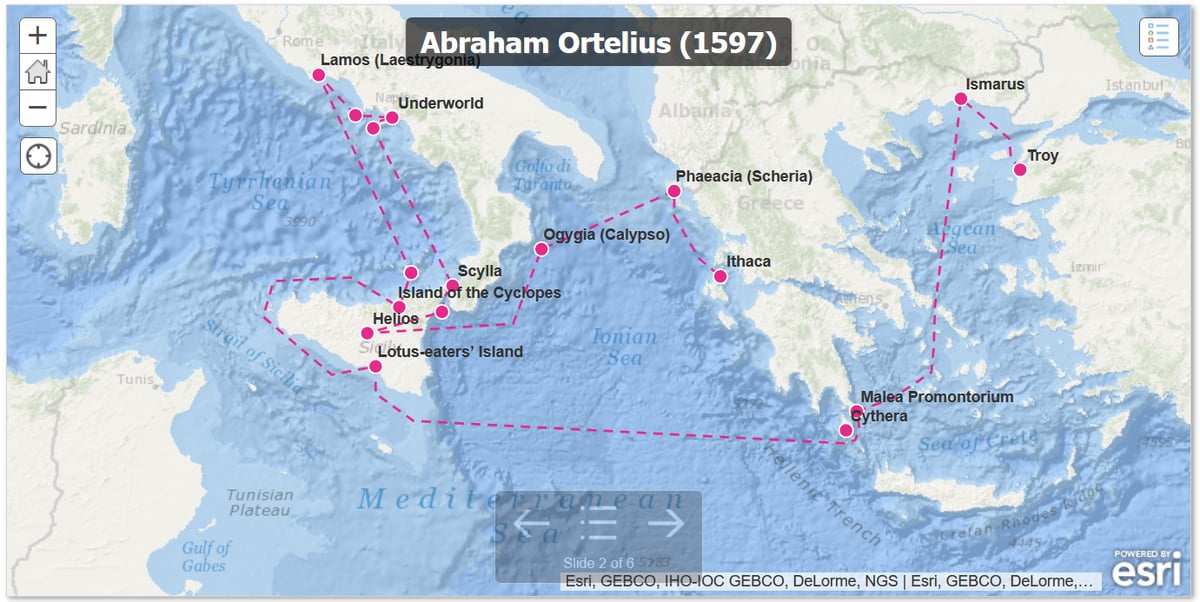Mapping the Odyssey Isn’t Easy

We’ve looked before at maps of Odysseus’s travels in The Odyssey (as Jason wrote in 2018, “that dude was LOST”). But it turns out — and maybe this shouldn’t be surprising — that it’s not easy to figure out exactly where Odysseus was in the Mediterranean Sea for all that time.
Scholars have pored over the text for clues for centuries, argued about their findings, and tried to interpret ambiguous language. We don’t even know for certain where Odysseus’s home island of Ithaca was.
Ithaca is one of a group of four islands, with smaller islands nearby, but it faces west while the others face east. (What does it mean for an island to face a direction?) It has forests and at least one mountain, and it is a good place for raising children. That isn’t much to go on.
Then there’s the whole question of what we gain from mapping The Odyssey in detail anyways. Some of it is plugging a gap in our imagination; we’ve gotten used to fantasy worlds supplying us with maps, and The Odyssey is a fantasy world that coexists with our own. But the level of detail is obsessive.
Attempts to map the Odyssey seem different from other attempts to locate the sites of famous myths and legends. Atlantis was the site of a wondrous civilization, Troy the landscape for an epic battle; finding them in the real world would mean discovering rich sources of evidence about past cultures. El Dorado’s location seems to have been coveted mainly for the lost city’s purported riches, Bimini for its rumored fountain of youth. But what do we gain by knowing where Helios kept his cows? Or which rocky, uninhabitable cave a kidnapping nymph called home?
Nevertheless, there’s a long history of scholars, artists, kings, and more attempting to write themselves into the myth of The Odyssey. The Aeneid, which simultaneously reimagines the founding of Rome as part of the story of the Iliad and Odyssey and elevates Virgil’s Latin poetry to the epic heights of Homer, is the most famous attempt to shore up a claim to legitimacy by appealing to the reality of the Odyssey’s ancient past.
But where exactly was Odysseus? Was he mostly in the Aegean and Italy, as Abraham Ortelius believed in 1597? Or was he scattered into the western Mediterranean, Spain, Corsica, North Africa, as Peter Struck thinks? We’ll probably never know. That dude was LOST.





Stay Connected